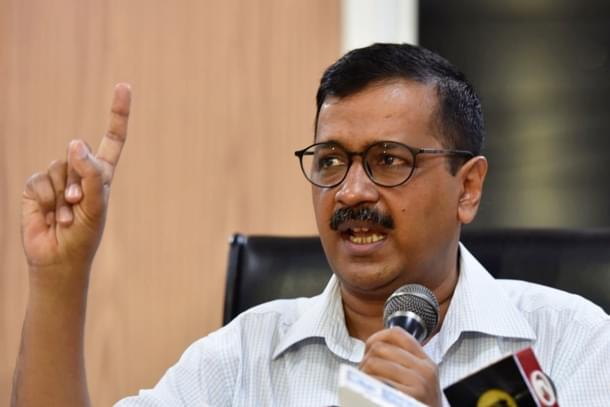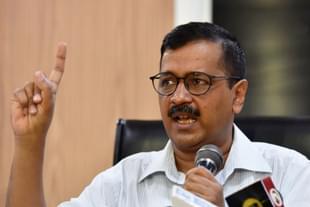News Brief
Arvind Kejriwal Moves Delhi High Court Against Trial Court Order In Liquor Excise Policy Case, ED Likely To Respond Today
Arjun Brij
Nov 21, 2024, 10:23 AM | Updated 10:23 AM IST
Save & read from anywhere!
Bookmark stories for easy access on any device or the Swarajya app.


Former Delhi Chief Minister Arvind Kejriwal has approached the Delhi High Court, challenging a trial court's decision to take cognizance of the Enforcement Directorate's (ED) complaints in the excise policy case.
Kejriwal is currently out on bail in cases filed by both the ED and the Central Bureau of Investigation (CBI), alleging financial irregularities in the now-scrapped 2021-22 Excise Policy.
The ED claims that the policy intentionally created loopholes, allowing a 12 per cent profit margin for liquor distributors in exchange for a 6 per cent kickback to Aam Aadmi Party (AAP) leaders.
These funds were allegedly used for election campaigns in Punjab and Goa. However, Kejriwal and his party have denied any wrongdoing and dismissed the investigations as politically motivated.
In his petition, filed on Wednesday (20 November), Kejriwal contends that the trial court’s order violated procedural requirements under Section 197(1) of the Criminal Procedure Code (CrPC), which mandates prior government sanction to prosecute public servants.
His legal team argues that invoking provisions of the Prevention of Money Laundering Act (PMLA) without such a sanction was legally untenable, as Kejriwal was a public official then.
The Delhi High Court is set to hear the plea on Thursday, with the ED expected to respond to these claims. Kejriwal has also sought to quash the trial court’s order and suspend ongoing proceedings.
The plea comes days after the Supreme Court clarified that the CrPC’s requirement for prior sanction to prosecute public servants extends to money laundering cases under Section 44(1)(b) of the PMLA.
A bench comprising Justice Abhay Oka and Justice Augustine George Masih upheld the principle that Section 197(1) of the CrPC aims to protect public servants from prosecution for actions carried out during official duties.
The Supreme Court had recently dismissed an ED plea challenging a High Court verdict that canceled charges against two IAS officers due to the lack of mandatory sanction. While the apex court left room for the ED to reinitiate complaints if the required sanction is obtained, it underscored that procedural safeguards for public servants could not be bypassed.
Arjun Brij is an Editorial Associate at Swarajya. He tweets at @arjun_brij





